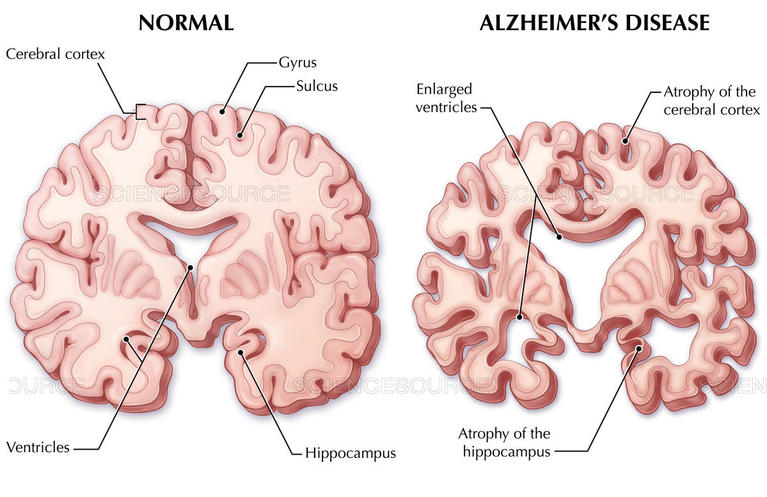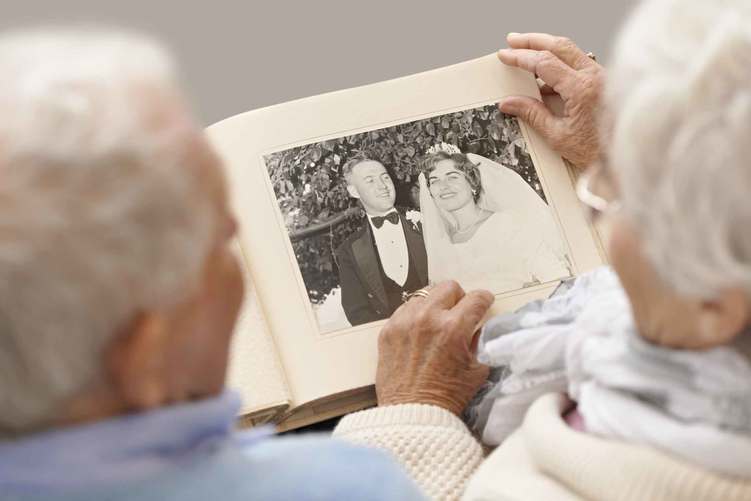Alzheimer’s – the do’s and don’ts of caring for someone with the disease
Learn how to treat a diagnosed family member, gain valuable advice for carers, and know the signs to look out for

ALZHEIMER’S Disease (AD) is increasing worldwide, and longer life expectancy is contributing to the rapid increase in the numbers and prevalence of chronic diseases such as dementia.
During September we celebrate World Alzheimer’s Month, and 21 September is World Alzheimer’s Day.
As dementia and Alzheimer’s Disease are escalating, it has become important for everyone to gain knowledge on the topic and to spread awareness.
Patients in the early stages
• Need to feel valued
• May be concerned about how the disease will affect themselves and their families
• Need companionship
• Will strive to hold on to and maintain an active and independent life
Patients in the later stages
• Need a caregiver who shows them love and affection and affords them a routine as well as familiar surroundings
• Should to be treated with dignity and respect. Although certain abilities will be lost, the person’s emotions and feelings will remain, as well as their need for companionship and belonging.

Suggested activities
While it can be challenging to keep the person with AD active during the day, here are some chores and activities that are suitable to keep them entertained and involved in the household
• Make the bed, fold laundry, peel vegetables
• Listen to music – this is incredibly soothing for patients with AD and dementia
• Looking at photographs together
• Gardening
• Light exercise such as walking around the garden, dancing to familiar music
• Swimming
It is important to keep in mind the things that the person liked to do in the past, and where possible, to provide activities and interactions that bring them a sense of joy and celebration.
The do’s and don’ts of caring for a person with dementia
• Do acknowledge them
• Do count to ten and walk away
• Do remember that you can control your actions and responses, they cannot.
• Do appear friendly (non-verbal communication)
• Do give reasons for a task
• Do respond to emotions
• Do encourage control, independence and decision making
• Do speak calmly at eye level. Make eye contact.
• Do use humour, when appropriate
• Do have patience
• Do touch/hug if appropriate
• Do develop a ‘behaviour profile’
• Do break down tasks into smaller, more manageable tasks, and ensure that it is within the patient’s capabilities
• Do ensure that the task is at the person’s level
• Do treat the patient as an individual, with adult rights
• Do maintain routine as much as possible
• Do communicate with family and visitors
• Do encourage the family to create a memory photo album
• Do be the person’s advocate.

Do not
• Don’t be bossy, raise your voice, shout or argue
• Don’t ask open-ended questions – give a choice. For example, ‘would you like beef or chicken for lunch?’, rather than ‘What would you like for lunch?’
• Don’t insist on trying to ‘rehabilitate’ the patient
• Don’t discuss them while they are in the room, or within hearing
• Don’t patronise or talk down to them
• Don’t reprimand or criticise
• Don’t restrain or isolate them, and never tie them down or lock them in a room.
Take care of the primary caregiver, as they often:
• Feel alone and isolated from friends
• Need assistance, but are reluctant to ask for it
• Unable to do errands or complete household tasks
• Experience stress that sometimes affects their health
• Need a break from caregiving
• Need someone who is willing to listen to them.
This disease affects the entire family
A person with AD needs more help as the disease progresses.
Much of the help comes from family members, and they often have to take on new responsibilities and have to adapt to greater demands upon their time.
They also have to alter the patterns of their own lives in order to be able to provide the extra time and help their loved one requires.
These changes may be very stressful, both physically and emotionally.
Caregivers tend to set their own needs aside while caring for the person with AD and fatigue is one of the major problems for the caregiver.
They reach the end of the rope in terms of their patience and this is related to fatigue, because if you are constantly tired it is very difficult to stay patient with someone who is repeatedly asking the same questions and constantly demands your attention.
Signs of ‘carer stress’
• Lack of sleep
• Lack of concentration
• Exhaustion
• Anxiety
• Increased health problems
• Denial that the person has the disease
• Anger at the patient, and others
• Emotional sensitivity
• Social withdrawal
Friends of carers can offer help by:
• Affording the carer time to get away from the patient and the environment for a while.
• Being a friend to whom they can talk and who would be willing to listen, as they often become isolated and lonely.
• Staying connected with them, and including them.
What is Alzheimer’s Disease?
Alzheimer’s disease is an irreversible, progressive brain disorder that slowly destroys memory and thinking skills and, eventually, the ability to carry out the simplest tasks.
In most people with the disease – those with the late-onset type – symptoms first appear in their mid-60s.
Early-onset Alzheimer’s occurs between the 30s and mid-60s, and is very rare.
Alzheimer’s is the most common cause of dementia among older adults, and is named after Dr. Alois Alzheimer.
In 1906, Dr. Alzheimer noticed changes in the brain tissue of a woman who had died of an unusual mental illness.
Her symptoms included memory loss, language problems and unpredictable behaviour.
After she died, he examined her brain and found many abnormal clumps (now called amyloid plaques) and tangled bundles of fibers (now called neurofibrillary, or tau tangles).
These plaques and tangles in the brain are still considered some of the main features of Alzheimer’s Disease.
Another feature is the loss of connections between nerve cells (neurons) in the brain.
Neurons transmit messages between different parts of the brain, and from the brain to muscles and organs in the body.
Many other complex brain changes are thought to play a role in Alzheimer’s.
This damage initially appears to take place in the hippocampus, the part of the brain essential in forming memories.
As neurons die, additional parts of the brain are affected.
By the final stage of Alzheimer’s, damage is widespread, and brain tissue has shrunk significantly.
Where can I get support?
In the City of uMhlathuze, the Alzheimer’s Support Group meets at the AGS (3 Waterberry Wood, Arboretum) on the first Thursday of the month at 10am.
For more information phone 072 2596610.
Useful links include Alzheimer’s South Africa – www.alzheimers.org.za and Dementia SA – www.dementiasa.org
Neuropsychology SA runs structured support groups in:
• KwaZulu-Natal (031 702 4321) – Amanzimtoti, Durban (Berea), Durban North, Hillcrest, Howick, KwaNgcolosi, Lower Molweni, Musgrave, Newcastle, Pietermaritzburg, Pinetown, Port Shepstone, Scottburgh, Umbilo, Upper Molweni, and Vryheid.
• Limpopo (011-792 2511) – Bela-Bela, Modimolle, Mooketsi, Polokwane, and Tzaneen.
• Eastern Cape (081-350 8079) – De Mist, East London, Grahamstown, Kwanobuhle, Port Elizabeth (Gelvan Park, Sunridge Park and Walmer), Treehaven and Uitenhage.
• Free State (051-522 4894) – Bethlehem, Bloemfontein, Kroonstad, Lapologang, Parys, and Welkom.
• Gauteng (011-346 2757) – Call this support number, as there are a number of Gauteng groups operational.
• Mpumalanga (013-007 0089 or 083 265 1187) – Botleng, Daantjie, Emalahleni, Kamhlushwa, Nelspruit, Nkomazi, Schoemansdal, Secunda, and White River.
• Namibia (061 227023) – Windhoek.
• Western Cape (021-979 2724) – Cape Town City Bowl, Durbanville, Fish Hoek, Grassy Park, Hermanus, Langebaan, Langeberg District, McGregor, Milnerton, Montagu, Moorreesburg, Panorama Hospital, Plumstead, Robertson, Somerset West, Strand, Table View and Worcester.
• Zimbabwe (+263 779 714905) – Harare.
HAVE YOUR SAY
Like our Facebook page and follow us on Twitter
For news straight to your phone invite us:
WhatsApp – 072 069 4169
Instagram – zululand_observer

